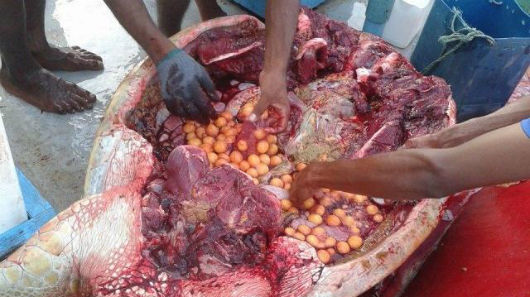Environmental offenders named and shamed on Facebook
Frustrated by the lack of government action on environmental misconducts, an environmentalist has set up a Facebook page to name and shame those who violate environmental laws and harm protected species.

07 Sep 2015, 09:00
On August 25, some 13 Maldivians were caught in Laamu Atoll with three sea turtles and buckets of eggs and turtle meat. The killing has revived concern among environmentalists over the government’s failure to impose fines for harming marine life.
The environmental protection law sets a fine up to MVR100million (US$6million) for damaging the environment and harming marine life. But fines are never imposed, said Yazeed Ahmed, the head of the Environmental Protection Agency (EPA).
Frustrated by the lack of action, an environmentalist has set up a Facebook page to name and shame those who violate environmental laws and harm protected species.
‘Reports on Environmental Misconducts, Maldives’ only has 2,866 likes on Facebook, but its posts have gone viral and garnered extensive media attention.
Become a member
Get full access to our archive and personalise your experience.
Already a member?
Discussion
No comments yet. Be the first to share your thoughts!
No comments yet. Be the first to join the conversation!
Join the Conversation
Sign in to share your thoughts under an alias and take part in the discussion. Independent journalism thrives on open, respectful debate — your voice matters.




